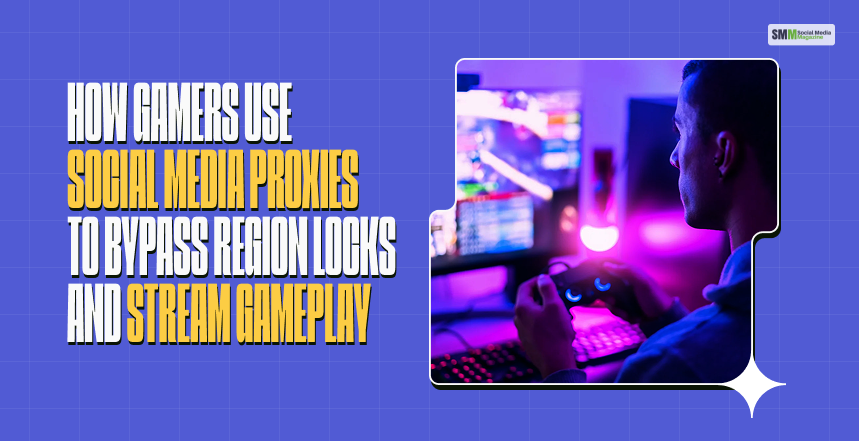How Gamers Use Social Media Proxies To Bypass Region Locks And Stream Gameplay?
Nabamita Sinha, 3 days ago

Nabamita Sinha, 3 days ago

Barsha Bhattacharya, 3 weeks ago



Nabamita Sinha, 5 months ago

Abdul Aziz Mondal, 1 year ago
Regarding hobbies, nothing gets better than playing card games with friends, sitting around in a circle, and eating marshmallows on the bonfire. Card games have been a popular hobby for centuries. With different types of games being passed down throughout generations, you can never get bored while playing. However, many people don't play them due to the stigma that playing cards is for the intellectual. While that may be true, no one can deny that card games are here to stay. People will never stop playing them. Therefore, read this post to learn more about card games' evolution and why people continue to play them. The Rich Rich History and Cultural Significance of Card Games Card games have a rich history that dates back to ancient times. They originated in China around the 9th century and spread to Europe by the 14th century. Over time, card games evolved and diversified, becoming an integral part of various cultures worldwide. Today, card games are enjoyed in homes, clubs, and casinos, reflecting their universal appeal. Card games' cultural significance is evident in how they unite people. Family gatherings, social events, and friendly competitions often feature card games, fostering camaraderie and bonding. The tradition of playing cards is passed down through generations, preserving the heritage and joy associated with this timeless hobby. In this smartphone-dependent digital era, social media has played a significant role in making card games more popular than before. However, you can connect most of this popularity to various benefits playing cards can have on you, which social media content highlights a lot. Therefore, some of the primary benefits why card games are still popular, accordion to social media influencers, are: 1. Cognitive Benefits One of the most compelling reasons to engage in card games is their cognitive benefits. Card games require strategic thinking, problem-solving, and memory skills, all of which contribute to mental sharpness. Regular gameplay can help maintain and improve cognitive functions, making card games an excellent brain exercise. According to a recent article by BBC, card games like bridge and poker are particularly effective at enhancing cognitive abilities. These games involve complex strategies and require players to anticipate opponents' moves, fostering critical thinking and decision-making skills. For those interested in understanding the cognitive benefits of card games in more detail, Why Card Games Are Good for Your Brain is a recommended resource. It provides insights into how card games stimulate mental processes and contribute to overall brain health. 2. Emotional and Social Benefits Beyond cognitive advantages, card games also offer emotional and social benefits. Playing card games can be a relaxing and enjoyable activity, helping to reduce stress and promote mental well-being. The social aspect of card games is equally important, as they encourage interaction and communication among players. Card games are often played in groups, providing opportunities for socialization and fostering a sense of community. Whether it’s a family game night or an online card game with friends, these interactions can enhance emotional connections and create lasting memories. 3. Versatility and Accessibility One of the reasons card games remain popular is their versatility and accessibility. There are countless variations of card games catering to different interests and skill levels. There's a card game for everyone, from fast-paced games like Spades to more strategic ones like Bridge. Digital platforms have further increased the accessibility of card games. Websites like World Of Card Games offer a wide range of card games that can be played online, allowing enthusiasts to enjoy their favorite games anytime, anywhere. These platforms often include tutorials and practice modes, making it easy for beginners to learn and improve their skills. 4. Educational Value Card games also offer significant educational value, particularly for children and young adults. Games like Go Fish, Crazy Eights, and Uno teach fundamental skills such as counting, matching, and color recognition. More complex games like Poker and Bridge can help develop advanced skills like probability, strategic planning, and risk management. In a New York Times article, experts highlight the educational benefits of card games, noting that they can enhance both academic and life skills. Engaging in card games regularly can improve concentration, patience, and perseverance, all of which are valuable traits in both academic and professional settings. 5. A Lifelong Pursuit The beauty of card games lies in their timeless appeal. They can be enjoyed at any age, making them a lifelong pursuit. You can even embed solitaire onto a website. Young children can start with simple games that teach basic concepts, while adults and seniors can enjoy more complex games that challenge their strategic thinking and memory. Card games can also adapt to different life stages. For instance, a busy professional might find solace in a quick solitaire game during a break. At the same time, retirees can engage in regular bridge clubs or poker nights to stay mentally active and socially connected. Moreover, with the arrival of TCGs (Trading Card Games), games like Pokemon TCG, Yu-Gi-Oh, Magic: The Gathering, and more have become super popular. Many players buy new cards daily to expand their card collection, taking pride in collecting and trading the rarest cards. These trading card games have now been carried over to the digital format by video games like Hearthstone and Legends of Runeterra. Since most players want to create unique decks to win tournaments, they always search for the best cards, which are often the rarest ones. This hobby of collecting and trading rare Pokemon cards has created great communities around their respective games. Moreover, people create pages and groups on social media to facilitate card trading and creating local tournaments! Conclusion Card games are more than just entertainment; they are a hobby that offers numerous cognitive, emotional, and social benefits. Their rich history, cultural significance, and versatility make them a beloved pastime for people of all ages. Whether played with physical cards or on digital platforms, card games continue to bring joy, challenge, and connection to countless individuals worldwide. As you explore the world of card games, remember that the benefits extend beyond the game itself. The skills and relationships you build through card games can enrich your life in many ways, making them a truly rewarding lifelong hobby. So, shuffle those cards, deal a hand, and enjoy the timeless pleasure of card games. Thanks for reading this post! If you have anything to say about playing cards and why you play them (or don’t), please comment below! Also read SEO Success Stories from Plumbing Companies. Securing Industrial IoT: Protecting Against Cyber Threats The Impact And Evolution Of SEO Companies In The Digital Era.

Abdul Aziz Mondal, 2 years ago
The recent trend in using social media platforms indicates how people are more into closed-group sharing. This practice allows individuals and businesses to interact with the right group without annoying others. So, Facebook, Instagram, and other social media marketing platforms are now exploring more options for enclosed group sharing. Instagram and Facebook are now allowing users to create different accounts so that they can be engaged across communities. Further, thanks to close-group sharing, they will be able to take part in the conversations in different communities using their alternative profile without adulterating the scenario. Further, Instagram has come with a new “Filpside” experiment. This experiment will allow you to use your alternative profile to engage with only the group you want to. In addition, more elements are being explored so that enclosed group sharing offers you a more customized experience. As a result, you will be able to own and flaunt a topical persona. At the same time, your followers will be able to pick the subject (s) or discussions they want to be a part of. Twitter is also not far behind in making closed-group sharing more interesting for users. It had already come up with a feature similar to enclosed group sharing. Twitter launched its “Facets” element in 2021, and it allowed users to add more than one persona to their main profiles. Further, with the Facet element, Twitter users could add more than one profile image to their main profile. Moreover, they could flaunt different facets or personas for different topics. For example, as a user, if you were talking about parenting, you could use a particular persona and profile picture. At the same time, you could use a different persona while talking about fashion. Overall, with the enclosed group-sharing feature, social media platforms will be able to encourage more users to post more frequently. This has been a challenge in recent times. So, this will likely be resolved as the platforms explore more options. Read Also: In Adherence To EU Laws, Meta Continues Working On Messaging Interoperability Instagram Continues Its Experiment With Notes, A Feature Favorite Among Teen Users Instagram Comes Up With New Add Yours Templates In Stories To Engage More Users